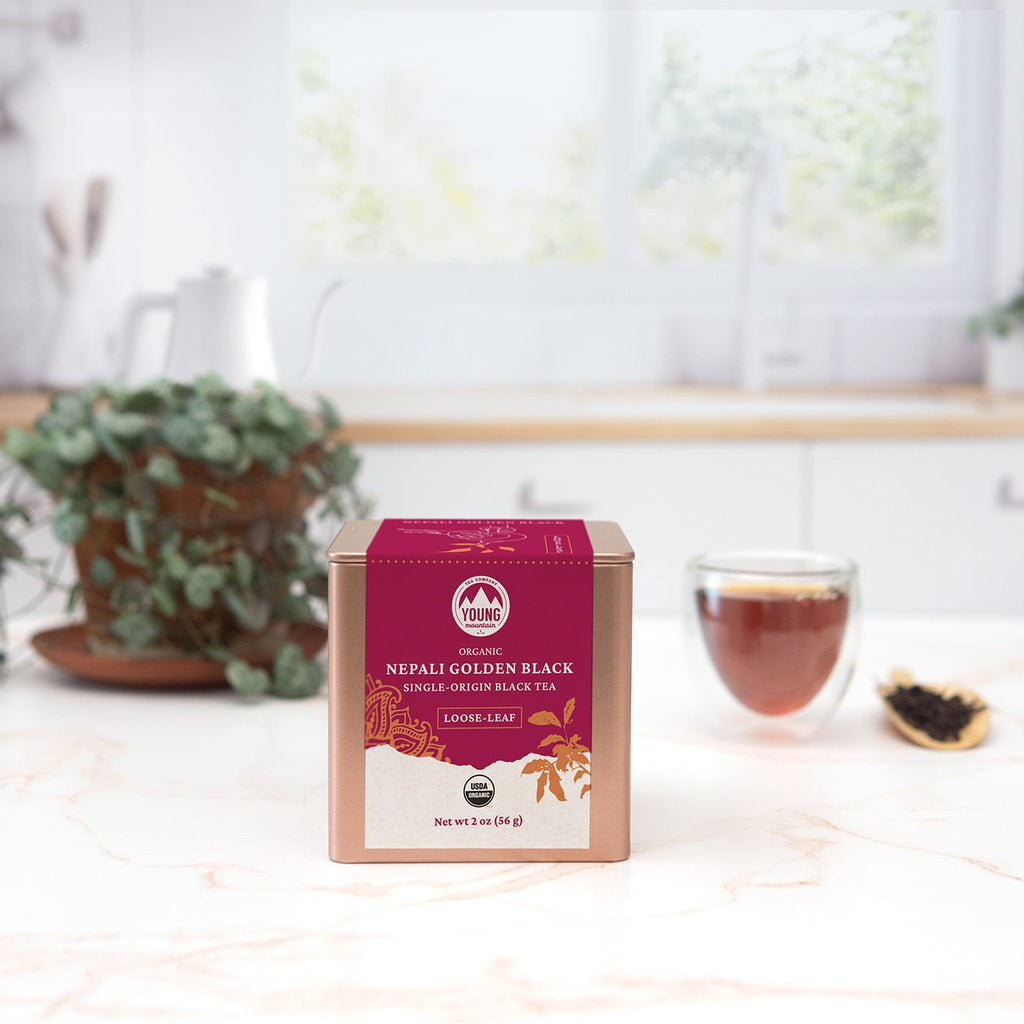
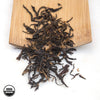
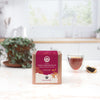
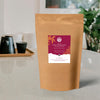
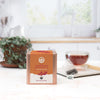
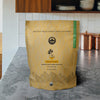
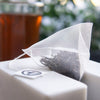
$17.99
Taste: Milk chocolate & dark honey
Origin: Ilam District, Eastern Nepali Himalayas
Tea Maker: Tinjure Cooperative
Infusion Suggestions:
Steep 1 1 Tbsp /2.5 g | 8 oz | 210° F | 3.5 min
Steep 2 8 oz | 210° F | 4.5 min
Certifications: USDA Organic
Contains Caffeine
Nepali Golden Black is a rich black with luscious layers of dark honey that make it one of our most popular teas. It’s made by Nepal’s first tea cooperative, grown organically, and serves as a great introduction into the world of specialty tea.
Tasting Notes: Its luxuriously smooth and creamy body is marked by undertones of dark honey and thick milk chocolate. For such a deeply satisfying black, its bouquet is surprisingly bright, and the aroma of apricots jumps out the cup. Breathe it in then enjoy the dive! Lovers of English Breakfast, Earl Grey, or Yunnan Gold are likely to enjoy this tea.
Production: Consistent with other high-end tea, this black is made using only the terminal bud and top two leaves of the tea plant. By carefully handling the plucked budset in both harvesting and processing, the fragile bud is preserved through to the finished tea. This leads an unusually high bud count for a black tea, and it’s this bud that gives the tea its wonderful complexities. Check out this graphic for more on tea processing styles.
Region: Nepal’s best-known tea growing regions are in the far eastern part of the country, bordering India and in the shadows of Mt. Everest. While tea has long been part of eastern Nepal’s past, it lacked the market access to establish its own identity. As a result, most Nepali tea has historically been sold as knock-off Darjeeling, given the two region’s nearly identical soils. The birth of an independent Nepali tea industry is being led by small-scale farmers whose families have moved fluidly throughout the region, long before Nepal and India were separate countries. As generations of community members traveled between eastern Nepal and northeastern India, many of Darjeeling’s Camellia sinensis saplings and secrets came with them. The emerging region is blending expertise with invention, and, in the process, paving a new model for tea in South Asia. Read our blog about this region here.
Tea Makers: In the early 1990s, three villages on three hillsides banded together and began growing tea. They named themselves Tinjure in homage to their geography -- Tin (“teen”) means three, and jure (“joo-ray”) means hills. The new Tinjure Cooperative sold its harvested green leaf to nearby established Nepal tea gardens, including Kanchenjunga Tea Estate, whose teas we also carry. In 2013, the Tinjure Cooperative raised funds to establish their own processing facility to craft their own tea from the green leaf they harvest. Today, the Tinjure Cooperative is 240 members strong.
Impact: The Tinjure Cooperative is Nepal’s first cooperatively owned and operated factory. By processing their own teas, farmers at Tinjure earn 20 times more than they did when selling the same green leaf to privately run factories. Tinjure’s board of directors, comprised of both women and men, is actively organizing and guiding other communities. Helping transform Nepali tea farmers into the more profitable part of the business--tea makers.
Packaging: Our commitment to sustainability means we offer our teas in several types of packaging:
.
